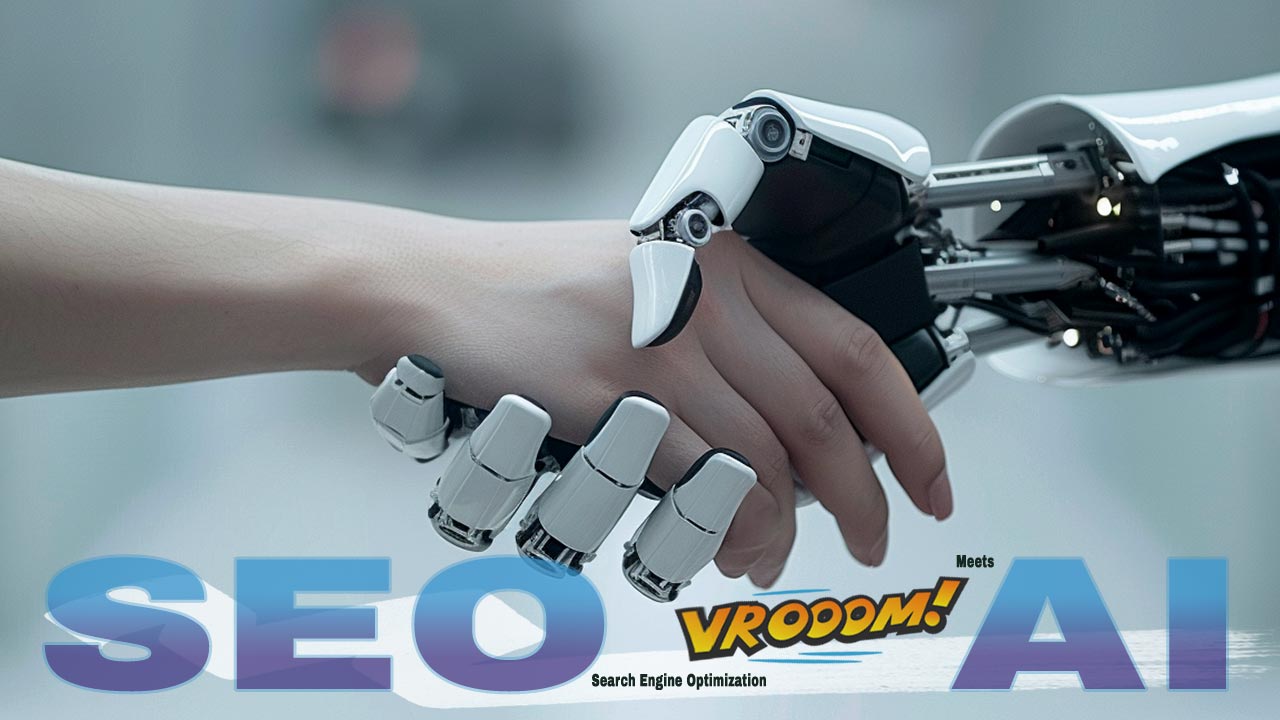Boosting SEO Success Through AI Integration
Today, leveraging AI to enhance SEO has become more than just a competitive advantage—it’s a necessity. As search algorithms become increasingly complex, integrating artificial intelligence into your SEO AI Integration strategy enables you to stay ahead of the curve. AI offers vast potential for SEO by improving data analysis, predicting user behavior, and automating optimization tasks that traditionally require manual effort. In this article, we’ll delve into how AI can revolutionize your SEO practices and drive exponential growth in search engine rankings.
We’ll explore the use of AI in content optimization, keyword research, technical SEO, and competitor analysis. By the end, you’ll have an understanding of how to integrate AI into your SEO strategy for long-term SEO Success Through AI Integration.
Table of Contents
- The Role of AI in Modern SEO
- AI-Powered Keyword Research and Insights
- AI-Driven Technical SEO Enhancements
- Competitor Analysis Through AI Tools
- Top 5 Frequently Asked Questions
- Final Thoughts
- Resources
The Role of AI in Modern SEO
Artificial intelligence has become a game changer in the world of SEO. With the ability to process massive amounts of data at unprecedented speed, AI allows marketers to make data-driven decisions that optimize their strategies more efficiently than traditional methods. As search engines, particularly Google, have adopted machine learning algorithms to better understand search intent, integrating AI into your SEO efforts has become essential.
AI helps SEO professionals streamline various aspects of SEO, from content creation to link building and everything in between. Whether it’s improving technical SEO through advanced site crawlers or using AI-powered platforms to analyze the competitive landscape, AI enables deeper insights and more accurate predictions. Below, we explore specific applications of AI in content optimization and natural language processing (NLP).
AI for Content Optimization
One of AI’s most significant contributions to SEO is content optimization. AI tools such as MarketMuse, SurferSEO, and Clearscope assist in optimizing content by providing real-time suggestions on keyword usage, readability, and overall structure based on top-ranking pages. These platforms use algorithms to analyze thousands of data points to offer insights on how to better structure your content, which helps increase relevancy and improves your chances of ranking higher in search results.
Furthermore, AI can evaluate content for latent semantic indexing (LSI) keywords, which helps search engines better understand the context and relevance of your page. This is crucial because keyword stuffing is no longer effective; instead, semantic relevance plays a more significant role in determining rankings.
AI and Natural Language Processing (NLP)
AI and NLP have become cornerstones in improving SEO, particularly in how search engines interpret user queries. NLP enables search engines to go beyond basic keyword matching and understand the intent behind a search query. Google’s BERT update is a perfect example of how NLP enhances the search algorithm by focusing on the meaning of search terms in context rather than just individual keywords.
For SEO professionals, this means that content needs to be designed with user intent in mind, rather than focusing solely on keywords. AI-driven tools like Frase and Topic leverage NLP to help you create content that aligns with search intent, providing a better user experience while boosting your SEO performance.
AI-Powered Keyword Research and Insights
Keyword research has traditionally been a manual process involving the identification of high-volume, low-competition keywords to drive traffic. With AI, this process becomes more sophisticated and precise, allowing SEO professionals to predict trends, identify new opportunities, and craft content strategies that align with evolving search behaviors. AI-powered tools can analyze vast datasets, enabling more efficient and accurate keyword research, making it indispensable for modern SEO.
Predictive Analytics in SEO
Predictive analytics powered by AI is a revolutionary advancement in keyword research. AI algorithms analyze historical data and search trends to predict what keywords will be valuable in the future. Tools like BrightEdge and SEMrush utilize machine learning models to forecast keyword trends based on seasonality, user behavior, and shifts in industry-specific queries.
For example, AI-driven predictive analytics can identify emerging keywords that are not yet oversaturated, allowing you to capitalize on content creation before your competitors. This proactive approach provides a significant edge, particularly in industries that evolve rapidly, such as technology and e-commerce.
Improving SERP Rankings with AI
Another advantage of using AI for keyword research is its ability to assess your current ranking strategy and identify areas for improvement. Tools such as MarketMuse and Ahrefs use AI to conduct competitor analysis, revealing which keywords your competitors are ranking for and how they optimize their content.
By understanding your competitors’ strategies, AI can recommend keywords that have the potential to drive traffic but are underutilized or not fully optimized by others. AI can also assess your on-page SEO factors, such as meta descriptions, title tags, and URL structures, ensuring that all elements align with the target keywords.
By integrating AI into your keyword research strategy, you can ensure that your SEO efforts are data-driven and adaptable to future trends, ultimately improving your rankings on Search Engine Results Pages (SERPs).
AI-Driven Technical SEO Enhancements
Technical SEO is the backbone of any successful search engine optimization strategy. It ensures that your website is crawlable, indexable, and user-friendly. AI has drastically improved the way we approach technical SEO, automating audits, identifying issues that may have gone unnoticed in manual reviews, and streamlining optimization processes. With the growing complexity of websites and search engine algorithms, integrating AI into your technical SEO efforts is crucial for maintaining a competitive edge.
Website Audits with AI
Website audits, which can be time-consuming and labor-intensive, are now significantly streamlined through AI. Tools like Screaming Frog and DeepCrawl leverage AI to perform comprehensive audits of your website. These tools can detect issues such as broken links, duplicate content, missing metadata, and slow page load speeds, all of which impact SEO performance.
AI-driven audits go beyond identifying surface-level problems; they also provide actionable recommendations. For instance, AI might suggest more efficient ways to structure your internal linking or provide insights on improving page speed, which is a key ranking factor in Google’s algorithm. By automating this process, AI allows SEO professionals to focus more on strategic decision-making rather than manually sifting through large amounts of data.
Crawling and Indexing Improvements
Search engines rely on crawlers to discover and index content on the web. However, not all pages are indexed equally. AI helps improve the efficiency of this process by ensuring that your website structure is optimized for crawling. Google’s RankBrain, an AI-based algorithm, prioritizes user experience and relevance, meaning your site’s architecture must support seamless navigation and content discovery.
AI tools like Botify can assess how well your website is crawled and indexed by search engines. These tools analyze your website’s structure, identifying issues such as deep pages that take too long to reach or broken links that hinder crawling. By implementing AI-based suggestions, you can enhance your site’s crawlability and ensure that search engines index your most important pages, improving your SEO visibility.
Additionally, AI-powered solutions help you understand how different pages on your website are performing from an indexing perspective. They can predict which pages are likely to rank based on user behavior and other ranking signals, enabling more targeted optimization efforts.
Competitor Analysis Through AI Tools
In the highly competitive world of SEO, understanding your competitors’ strategies is crucial for staying ahead. AI has significantly improved the efficiency and depth of competitor analysis, providing insights that were once difficult to obtain. By leveraging AI-driven tools, you can identify opportunities, uncover gaps in your own strategy, and better understand the competitive landscape. This leads to more informed decision-making and ultimately stronger SEO performance.
AI in Backlink Analysis
Backlinks remain one of the most critical factors for determining a website’s authority and ranking potential. However, not all backlinks are created equal, and analyzing their quality can be complex and time-consuming. AI has revolutionized backlink analysis by automating the process and providing deeper insights into the backlink profiles of competitors.
AI-powered tools like Ahrefs and SEMrush use machine learning to evaluate the quality, relevance, and authority of backlinks pointing to your competitors’ sites. These tools can identify high-value backlinks that contribute to their rankings, allowing you to replicate or even improve upon their link-building strategies.
Additionally, AI tools help you avoid toxic or low-quality backlinks that can negatively impact your site’s SEO. With real-time monitoring and insights, AI ensures that you are building a strong, clean backlink profile while also tracking your competitors’ link-building activities.
Content Gap Identification
Another key advantage of AI in competitor analysis is content gap identification. AI-driven tools like Frase and SurferSEO can analyze your competitors’ content to identify topics or keywords they cover that you don’t. These content gaps are opportunities to create new content that addresses unmet user needs, giving you a competitive edge.
AI tools can also compare the performance of your content against that of your competitors. By analyzing metrics like keyword rankings, engagement rates, and social shares, AI can highlight areas where your content may be underperforming. This enables you to refine your strategy, improve existing content, or create new, high-quality pieces that fill the gap.
AI doesn’t just identify gaps; it helps you prioritize them based on potential traffic gains and competition level. This way, you can focus your resources on content that will deliver the most impact, helping you overtake competitors in key areas.
Top 5 Frequently Asked Questions
Final Thoughts
AI has transformed the SEO landscape, offering powerful tools that automate and optimize various aspects of the strategy. By integrating AI into your SEO efforts, you can gain a competitive edge, streamline your processes, and unlock higher search rankings. The most important takeaway from this article is the necessity of adopting AI not as a replacement for human ingenuity, but as an essential tool that enhances decision-making, optimizes workflows, and predicts future trends. AI and human expertise together form an unbeatable combination in the pursuit of SEO success.









Leave A Comment